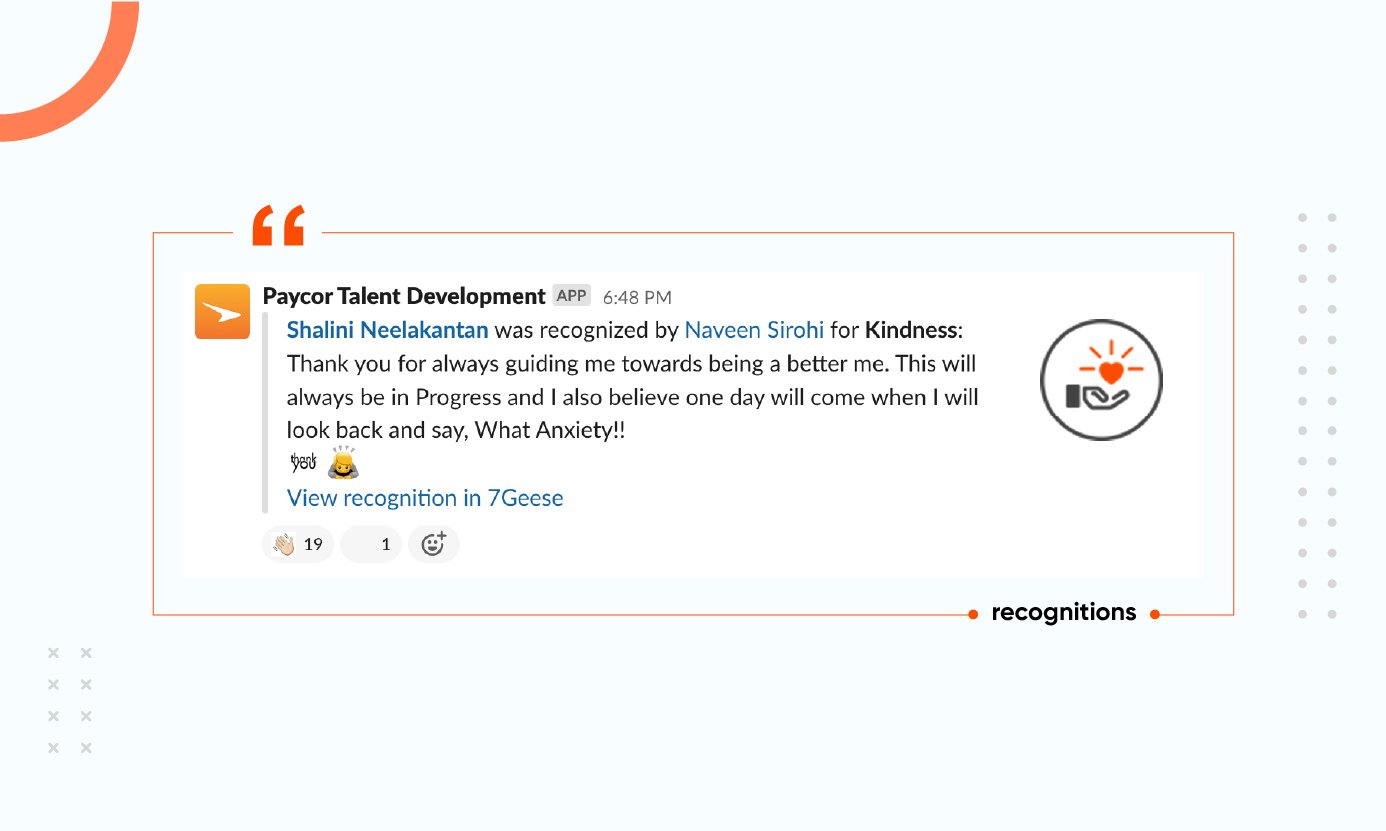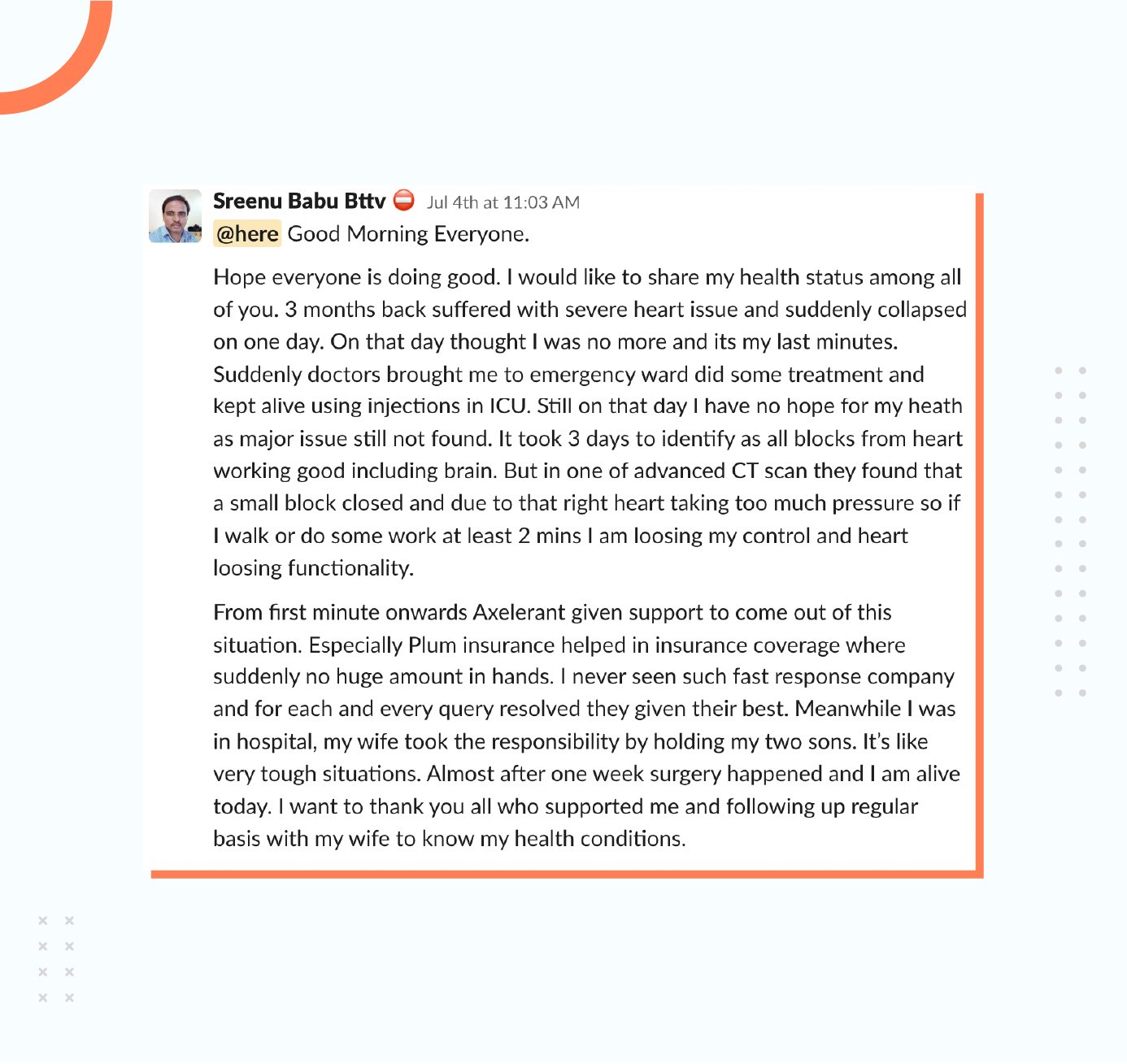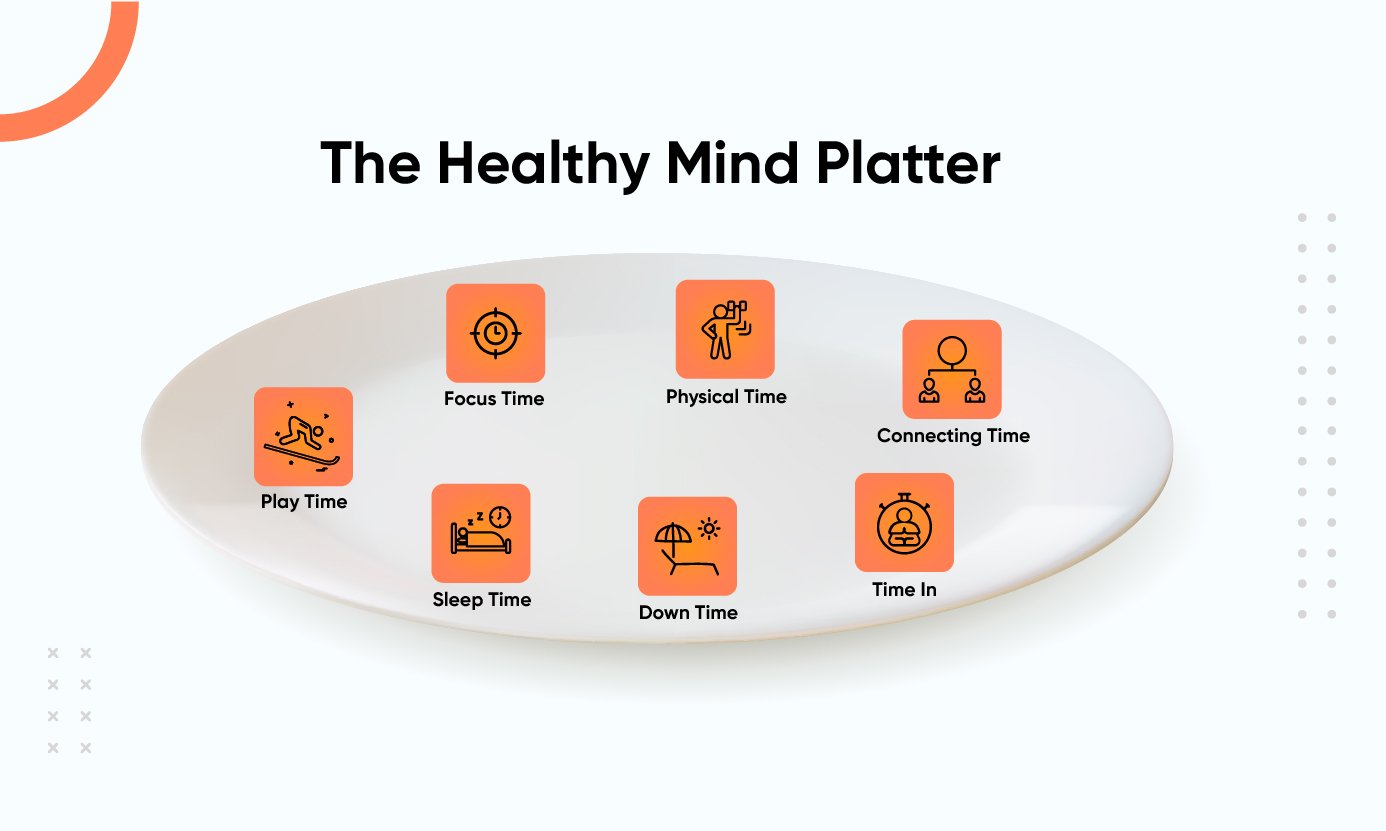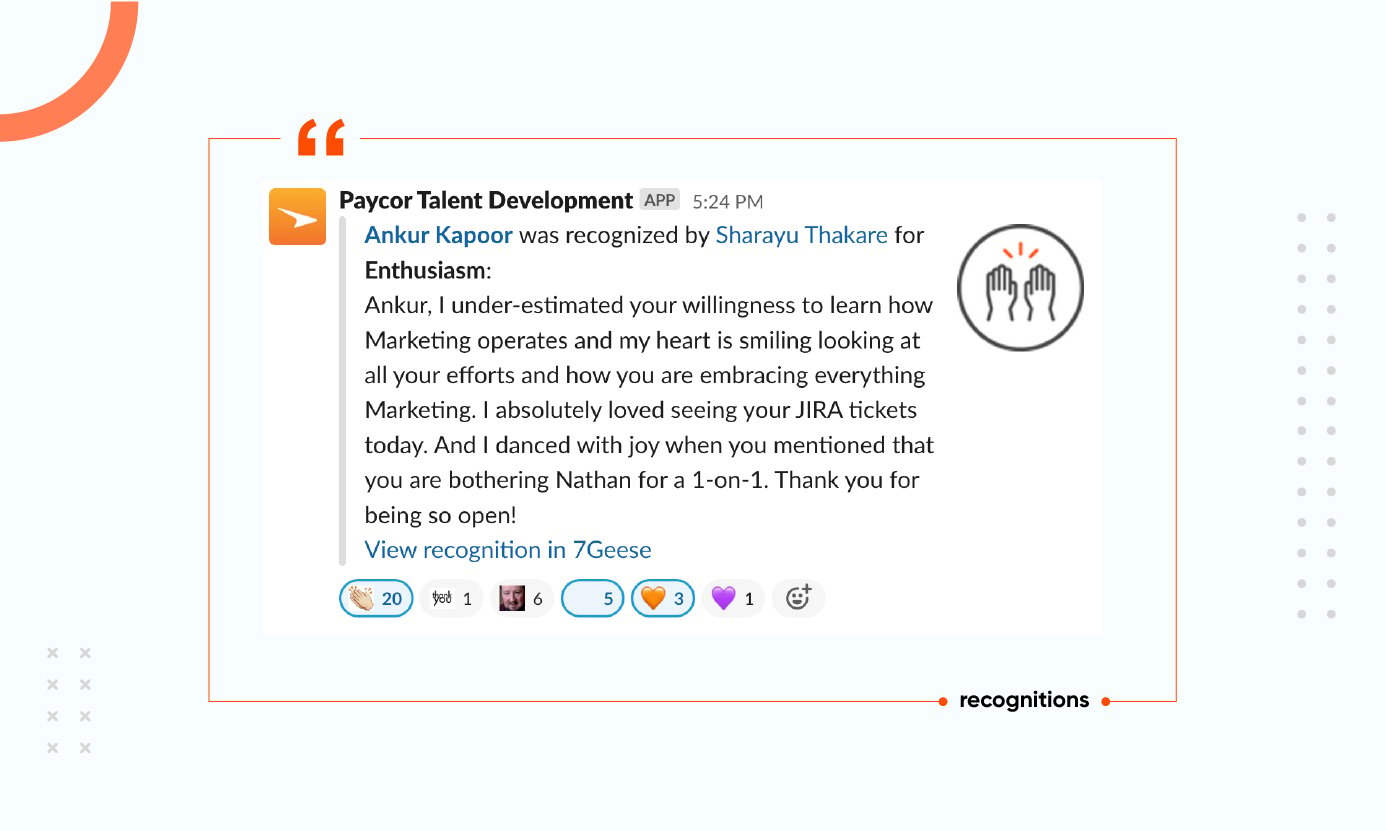Introduction
Workplace anxiety is as real a part of work as communicating.
The reasons may differ. But from CEOs to freshers—and everyone in between—experience anxiety.
It raises other negative emotions, such as fear and anger, and gradually takes control over your mind.
Before you know it, your productivity, clarity of thoughts, and peace of mind take a hit.
You may be able to avoid these symptoms.
But some of its consequences—job loss, fraying relationships, financial troubles? Perhaps, not so easily.
You're Not Alone In Experiencing Anxiety At Work
Not at all.
Everyone goes through anxious phases at work. Some, maybe more than others.
The American Institute of Stress discovered that around 83% of US workers suffer work-related stress and anxiety.
About one million Americans miss work each day because of stress.
That's just in one nation. Imagine what worldwide stats would look like.
Given the seriousness of the condition, no organization—that cares for its people—can afford to look the other way.
It’s time companies take concrete steps to ensure that their people aren’t drowning in anxiety.

That’s Why We Decided To Tackle It Head-On
At Axelerant, we see team members as people, not mere resources.
People have emotions and feelings, and we don't expect them to bottle them up at work.
Encouraging people to bring their whole selves to work is the first thing we focus on during onboarding.
Each team member is assigned a coach for their overall well-being and professional development.
(Yes, we have an in-house Coaching team specifically for this purpose. Because it can’t be all talk, can it?)
Performance Coach Shalini Neelakantan recently took a session on dealing with anxiety at work, drawing on her years of experience.

Through Performance Coaching
For the past two decades, Shalini has been helping people develop interpersonal skills integral to career growth.
"As a coach, I enjoy watching individuals make much-needed strides on their own accord through insightful coaching conversations," she said.

When she began her coaching journey, Shalini had to battle bouts of anxiety, too.
First, as a Management Lecturer and then as a Corporate Trainer, Shalini's work required speaking in front of an audience.
Almost before every session, she would experience a debilitating feeling of anxiety—she had neither developed subject matter expertise nor stage confidence.
Shalini spent nearly a decade carrying that feeling till one fine day, she stopped and asked:
"Why on earth am I fretting over my work when I'm deeply passionate about it?"
Her answer came in the realization that her focus was always on:
- What could go wrong
- What she was doing wrong
- What people would say
"I decided to accept positive feedback and not look for everything I did wrong. That changed a lot of things for me."

By Asking The Hard Questions
Here are the questions that Shalini answered during the session. Click to directly go to their answers.
-
What are some common physical or mental symptoms of workplace anxiety?
-
How can someone learn to identify the triggers of their anxiety at work?
-
Can talking to friends and family also help in combating workplace anxiety?
-
Can problems in personal life also contribute to workplace anxiety?
-
At what point should a person experiencing workplace anxiety seek professional help?
-
How does having performance coaching in the organization help someone experiencing anxiety at work?
On How To Deal With Anxiety At Work
The following are answers to the questions discussed during the session.
Is anxiety at work a bad thing?
Not necessarily.
We need to realize that every emotion has value. And so does anxiety.
Imagine if someone you love is unwell, and you don't feel even a little anxious. You'd probably question your very relationship.
In such a case, anxiety triggers you to do all that you can to care for your loved one.
Or imagine if you have an important sales presentation with high stakes.
A sense of anxiety will likely help you prepare better for questions you're anxious about.
In both these cases, anxiety can help you move forward positively.
Anxiety shows that something is important to you. The idea is that we don't go overboard.
When plagued with either constant self-doubt or a sense of doom (a torrent of what-ifs), it causes a constant state of anxiety.
And that is an indicator that you need to manage your anxiety sooner than later.
What are some common physical or mental symptoms of workplace anxiety?
I'd first share the physical symptoms because they are easier to track or notice.
- Palpitations
- Sweating
- Breathlessness
- Headache, stomach ache or nausea
- Muscle aches, stiffness of muscles
- Hands or legs trembling
- Dizziness
It’s important to note that while these are symptoms of anxiety, they need not always be caused by anxiety.
Mental symptoms are perhaps harder to realize, and they can be of a wide variety.
- Lack of focus
- Mental block—inability to think through
- Irritability
- Restlessness and Tension
- Overwhelming fear
- Escapisms—daydreaming, sleeping
- A sense of depression
When you experience any of these symptoms, check if they are associated with your feeling of anxiousness or stress.
Just this awareness could help you work towards managing your anxiety, and exercise more mindfulness and self care.
How can someone learn to identify the triggers of their anxiety at work?
Identifying triggers can be simple.
More often than not, we know the person or situation that can trigger anxiety in us.
At times, even physical symptoms might bring us to the realization that we are experiencing anxiety.
Observing yourself, journaling, and talking with someone about your anxiety can help identify triggers if they are not so apparent.
Can talking to friends and family also help in combating workplace anxiety?
Yes, it does help. But few people manage to ask for help in a moment of anxiety.
Talking with people—be it a coach, a friend, a colleague, or a family member, can be a great support.
We feel connected when we talk with others about how we are feeling.
It might be easier to feel calm when we experience compassionate empathy. It creates a sense of acceptance, care, and kindness.
And an emotional connection can help take your mind off what's causing you anxiety.
Can problems in personal life also contribute to workplace anxiety?
Yes.
It can have a stronger impact when the person is unable to put their personal life anxieties aside when at work.
In Axelerant, when we say—bring your whole self to work—our team members know that we are going to be mindful when they are facing personal challenges that cause anxiety.
And we have seen that happen in many instances here.

What are some ways of coping with anxiety at work?
Talking with a mental health professional is always a good way to address anxiety.
But we can do a few things ourselves to cope with or manage anxiety.
First comes the "being prepared" part.
Acknowledge anxiety
You can do this by observing your symptoms or realizing your triggers.
If you don't recognize or call out your anxiety, you can't be in a position to do something about it.
Have a plan ready
We don't want to avoid anxiety but deal with it. Once you know things that make you anxious, you can plan for them.
For instance, an upcoming presentation might kick in a wave of anxiety.
Focus on planning for the presentation based on the audience, the type of content they would find interesting, the possible questions that might come your way, and how you would tackle them.
The whole exercise will shift your focus from anxiety to planning. And it'll also increase your chances of success.
Feed on good mental habits on good days and bad
Mindfulness or deep breathing exercises are great for battling anxiety.
But it will hardly come to your mind, or seem adequate, if you haven't adopted them as a regular practice.
For example, if you know sleep's value, you're more likely to embrace it on stressful days.
Once you make these steps a part of your life, dealing with anxiety and taking action when it strikes becomes easier.
Focus on creating a healthy mind
Help yourself to a healthy mind. It includes:
- Getting good sleep
- Proper exercise
- Playtime—doing things you enjoy that stimulates creativity and spontaneity
- Being engaged at work
- Relaxing your mind—giving your mind the much needed break to recharge
- Have a set time for reflection of what you want, where things are, and where do you want to go from here
Dr. David Rock and Dr. Daniel J. Seigel introduced the 'Healthy Mind Platter.'
They described it as "mental nutrients" that our brains and relationships need to function at their best.

Practice deep breathing
Whenever you're feeling anxious, practice deep breathing.
Start with slow, shallow breaths—and work your way up to long, deep ones.
It calms you down and increases the amount of oxygen flow to the brain, which helps you think clearly.
Do a quick mindfulness exercise with your five senses
This exercise is instantly helpful for anyone, and it doesn't take sitting quietly for 10-15 minutes.
Sit comfortably with your backbone straight.
Follow the steps in this order, each for at least 10 seconds.
Before you start, pay attention to your breathing. Gradually go towards slow, deep, long breaths. It will bring you down to a calmer state.
Now, follow these five steps to ground yourself.
- Notice five things you see around you. It could be anything—even a spot on the floor.
- Acknowledge four things you can touch around you. It could even be the ground under your feet.
- Detect three things you hear. Pay attention to the sound closest to you and then the farthest.
- Acknowledge two things you can smell. Go outside and sniff out scents from nature if required.
- Find one thing you can taste.
It immediately diverts your mind and brings it to the present, shifting your focus away from your anxiety for at least the moment.
This six-second pause can help you get a grip on your thought process. Then you can move forward or reach out to someone and talk.
Keep a cache of stuff that makes you happy
We all have movies, songs, books, short stories, and even quotes from which we like to take inspiration and joy.
For some, their faith, religious text, and prayer makes a significant difference.
Keep a cache of positive or humorous stuff nearby that you can return to.
But beware of social media. Mindless scrolling doesn't help. In fact, it can make you feel more stressed.
If you don't know what works for you, try out different things and notice what's making you feel calm and positive.
Practice evidence-based thinking
When anxious, a lot of negative thoughts swirl around in your mind, like:
- This is going to go haywire
- I'm not good enough
- Everything is going to fall apart
Sometimes, we tell ourselves stories that aren't true—or may have been true in the past.
Finding recent evidence behind these anxiety-triggering stories helps us confront the truth.
I know of high performers with anxiety that originates from an increased fear of failure.
When they look back at their life experiences, see failure as an integral part of growing, and then notice their present success—they have evidence against their fear.
I was in a recent conversation with a friend in a leadership role. They were seriously troubled about making a wrong decision concerning their parent's care.
"I am so stupid," they said. "I never can make the right decisions."
What happens when this person stops and looks at what got them to the leadership role?
I've often asked coachees to journal or record the challenges they have overcome. It's a great resource to return to when you're anxious with self-doubt.
Past accomplishments, big or small, boost your self-perception.
Don't be too self-critical.
Focus on when things have worked out well when you've achieved something or made things happen.
There is a time to be a self-critique. But don't overdo it.
It helps to accept yourself, warts and all. Just be.
Focus on your wins and recognitions. They are the evidence base of your talents, skills, knowledge, and abilities.

Change perspectives
What is daunting can also be exciting.
You can choose to look forward to a presentation with a sense of doom or a sense of excitement.
Either will make an impact.
Stop worrying about things that are yet to come
Consider the phrase: I'll cross that bridge when it arrives.
Concentrating on the present helps us face the present better. And not think as much about the uncertain and unforeseen future.
At what point should a person experiencing workplace anxiety seek professional help?
It's never too early to reach out for professional help.
But there are some consequences of anxiety that one should be mindful of.
- If it hampers your personal or professional relationships
- Creates persistent sleep issues
- Affects your ability to concentrate
- Stops you from doing the things you enjoy
- Fosters a sense of self-loathing or a feeling of worthlessness
- Isolates you from others
- Causes you to have suicidal thoughts
- Causes you to have physical health concerns
If you're struggling with some or many of these conditions, it's a good idea to consult a qualified mental health professional.
How does having performance coaching in the organization help someone who is experiencing anxiety at work?
Having a coach can be a much-needed boost for a lot of things, including anxiety.
A coach has a cathartic value
You tend to feel better when you speak about what's causing you anxiety. A coach provides you with a safe, non-judgmental space.
They can help bring clarity
When we are anxious, we tell a story to ourselves:
This is what's happening—this is how it could go—this is how it's going to have a bad ending.
Your coach can call up specific insights and ask you, “Hey, is this perspective of yours really true? Is there an alternative reality?”
These questions nudge you to see things from a different perspective that you may not have thought of.
And you may quite possibly end up thinking: “Hey, I have answers that I didn’t think I did. I’m not really backed up against a wall as I imagined.”
Provide an objective perspective
Let's say you receive critical feedback. Now, you're scared about losing your job. You get all these negative, fearful thoughts.
A coach can help you see things objectively.
They can help by:
- Directing you toward the facts of a situation
- Helping you understand perceptions and expectations
- Bringing clarity around what is expected
- Assisting you make conscious choices to grow through feedback instead of feeling anxious about it
Coaching gives you a space to express your emotions in the process, be it anger or fear.
It puts you in a better place to accept and process your thoughts and emotions.
Talking to a coach can help you realize that worrying won't help.
They can help you create an action plan through constructive dialogue—of all the things you can do to stop the outcome that makes you anxious.
If you're struggling with anxiety at work or personal life, reach out to a mental health professional—or your coach, if you have access to one.
Your mental health matters as much as the condition of your physical body.


Rohit Ganguly, Content Marketer
Rohit is a content marketer first and a YouTuber second. He loves to interact with animals, feed them, clean his apartment, and spend time with friends and family. Curious by nature, he also enjoys literature, movies, meditation, and calligraphy.

 We respect your privacy. Your information is safe.
We respect your privacy. Your information is safe.



Leave us a comment